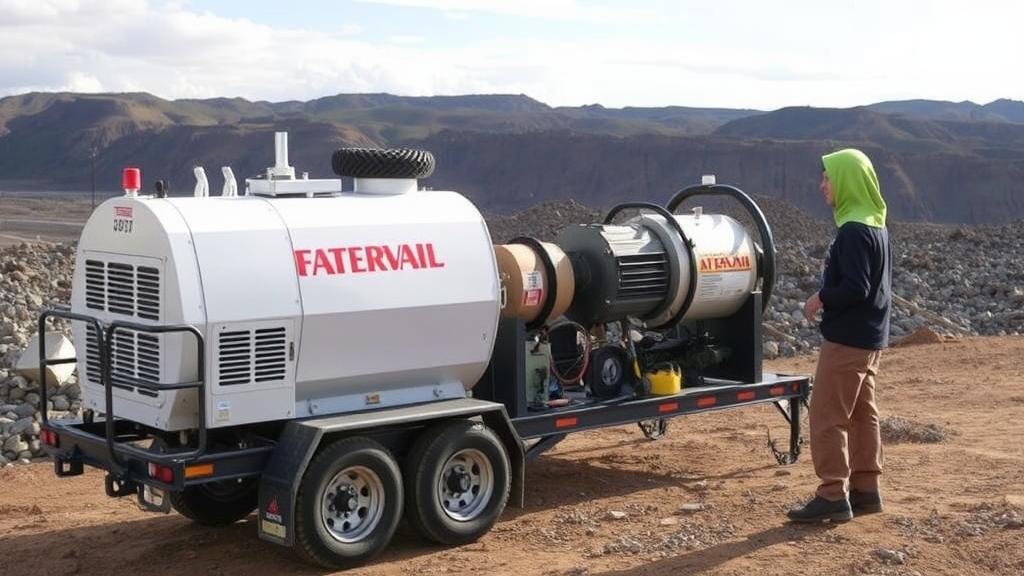Using Portable Equipment to Process Hard Rock Ore on Location
Using Portable Equipment to Process Hard Rock Ore on Location
The mining industry has witnessed significant advancements in technology and methodology, particularly in the realm of processing hard rock ore. This article explores the benefits and practicality of using portable equipment to process hard rock ore on location, allowing miners to increase efficiency, reduce costs, and optimize mineral recovery.
Understanding Hard Rock Ore Processing
Hard rock ore refers to mineral deposits that are typically found in solid rock formations. Processing these ores involves several steps, including crushing, milling, and extraction of the desired minerals, commonly gold, silver, or copper. complexities involved in processing hard rock ores require specialized equipment and techniques.
Traditionally, ore was processed at centralized facilities that are often located far from mining sites. This not only increases transportation costs but also delays mineral recovery. Fortunately, portable processing equipment provides a viable alternative.
Benefits of Portable Equipment
- Flexibility and Mobility: Portable equipment can be easily relocated to different sites, allowing miners to respond quickly to changes in ore deposits.
- Cost-Effectiveness: On-site processing reduces transportation costs and can minimize downtime, leading to a direct increase in profit margins.
- Environmental Impact: By processing ore directly on-site, the need for transporting large volumes of material is diminished, reducing the carbon footprint.
Types of Portable Equipment
Various types of portable equipment are available for processing hard rock ore, each designed to cater to specific stages of the processing cycle:
- Portable Crushers: These machines are designed to crush large rocks into smaller, manageable sizes. For example, the Terex Finlay J-1175 is a compact mobile jaw crusher known for its high throughput and versatility.
- Portable Mills: These are used for the milling process after crushing. The Gold Mills portable unit allows for on-location processing, facilitating better recovery rates for gold ores.
- Concentration Tables: Recovery of valuable minerals can be enhanced with equipment like the Wilfley Table, which is designed for separating minerals based on specific gravity.
Real-World Applications
Several mining operations have successfully implemented portable processing equipment, leading to improved outcomes:
- The Nevada Gold Mines: Utilizing mobile screening and crushing equipment, these operations have achieved up to a 30% increase in gold recovery rates by processing directly at the site.
- Artisanal and Small-Scale Mining (ASM): In areas like Africa and South America, miners use portable equipment for processing hard rock, making mining more accessible and increasing local economies.
Challenges and Considerations
While the advantages of portable processing are significant, there are challenges that must be overcome:
- Equipment Limitations: The capacity and capability of portable equipment may not match that of fixed installations, necessitating a careful evaluation of material volumes.
- Maintenance and Reliability: Mobile units may require intensive maintenance, especially in remote areas. Regular check-ups and fitting for rugged terrain are crucial.
- Regulatory Compliance: Miners must adhere to local laws and regulations, which may dictate the use of certain technologies and methods.
Actionable Takeaways
For miners considering the shift to portable equipment for processing hard rock ore, there are several key points to keep in mind:
- Conduct thorough site assessments to determine the suitability of portable processing methods.
- Invest in high-quality, durable equipment that can withstand harsh mining conditions.
- Stay informed about regulatory changes impacting the use of portable equipment in the mining sector.
- Monitor and analyze recovery rates closely to optimize processing methodologies and improve profitability.
To wrap up, using portable equipment to process hard rock ore on location not only meets the current demands for efficiency and sustainability but also paves the way for enhanced mineral recovery and reduced operational costs. As technology continues to evolve, the mining industry stands to benefit significantly from these innovative practices.



